Pre-sunrise meals and fasts. How Rochester athletes train and compete during Ramadan
The aroma of eggs and toast waking Othman Belhseine up is one thing he misses most about Ramadan back home.
Before the University of Rochester sophomore spent the Muslim holy month on campus, Belhseine and his two brothers woke up at 4:30 a.m. to eat before sunrise, and fell back asleep a few more hours before their Greece Athena classes begin.
These days, with college courses and soccer practice cramming his schedule, Belhseine doesn't have the resources to make a bountiful predawn spread like his mom would make. He instead settles for water, cereal, yogurt, fruit and bread before the sun rises around 5 a.m.
Belhseine won't break his fast until around 8 p.m.
"I definitely eat a lot more when I'm at home. It goes a long way fasting throughout the day," Belhseine said.
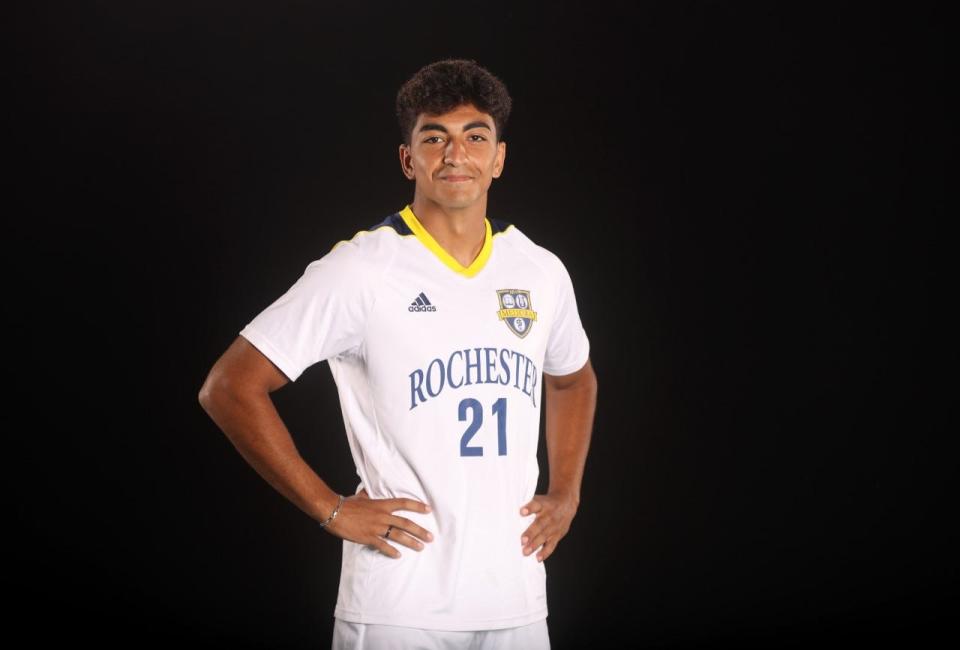
While fasting for Ramadan, Muslims don't consume food or drink from sunrise to sunset. Suhoor is the meal before the sun rises, which is currently around 4:45 a.m. Iftar is the meal that breaks the fast at sunset around 8 p.m.
This means Muslim athletes like Muneeb Aslam cannot eat a pregame meal or hydrate themselves with water, even though the Pittsford Sutherland senior has tennis matches and practices between those hours.
"Personally, I really commend them. I think it's great that they are able to do it," said Maysoon Harunani, vice president of UR's Muslim Students' Association.
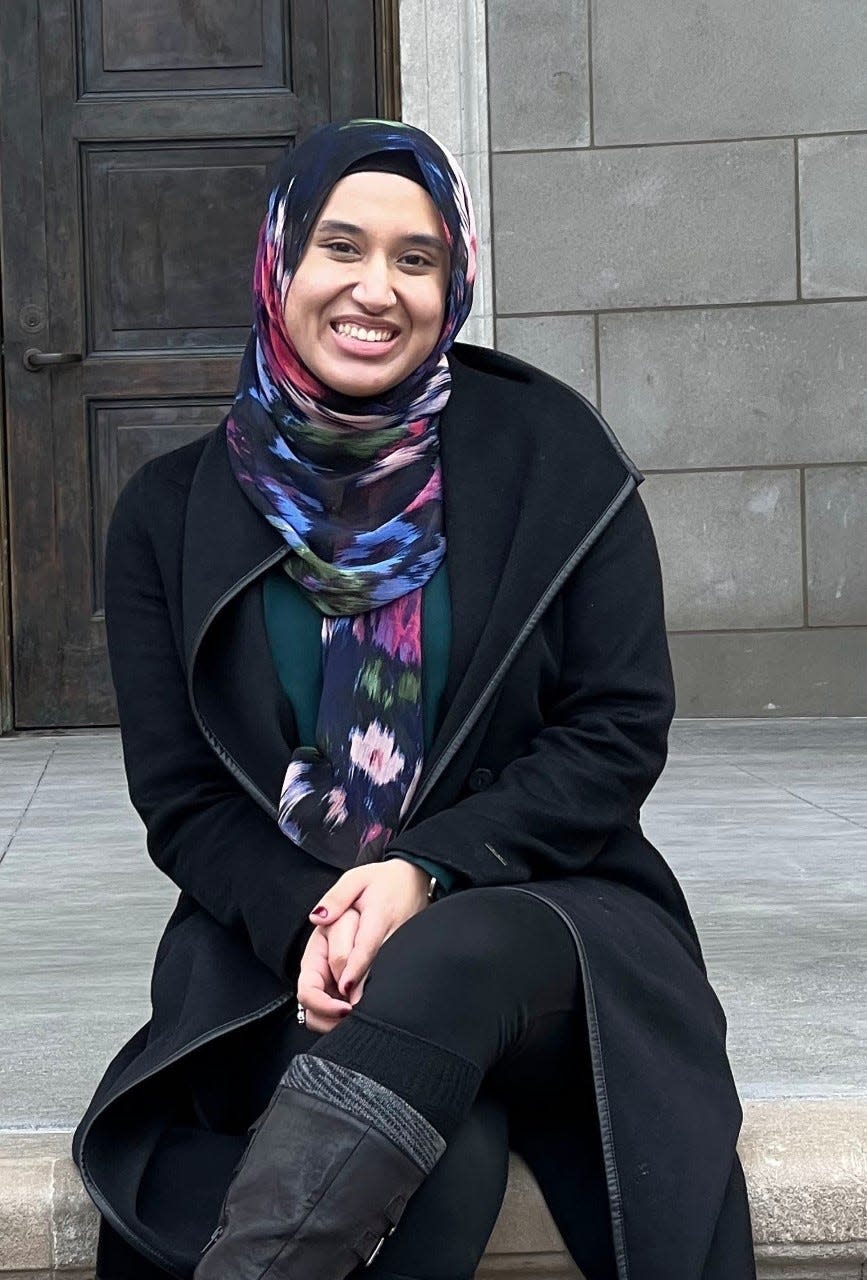
Aslam, 18, has fasted throughout his high school tennis career. He said his best performances came during Ramadan. As a freshman, Aslam advanced to the finals of a doubles tournament, but he was so tired after three hours of matches, he could barely move around the court during the championship.
"You feel it as soon as you get home," Aslam said. "It's sometimes difficult to get in and out the shower. The dry feeling in your throat, you just have to slug it through the last hour."
Aslam can play 90 minutes of tennis without water. Matches are done around 6:30 p.m., about an hour or before iftar.
"I'm told he gets up at 4 a.m. to have some breakfast. Even so, he is always there for the team," Sutherland tennis coach Joe Thyroff said.
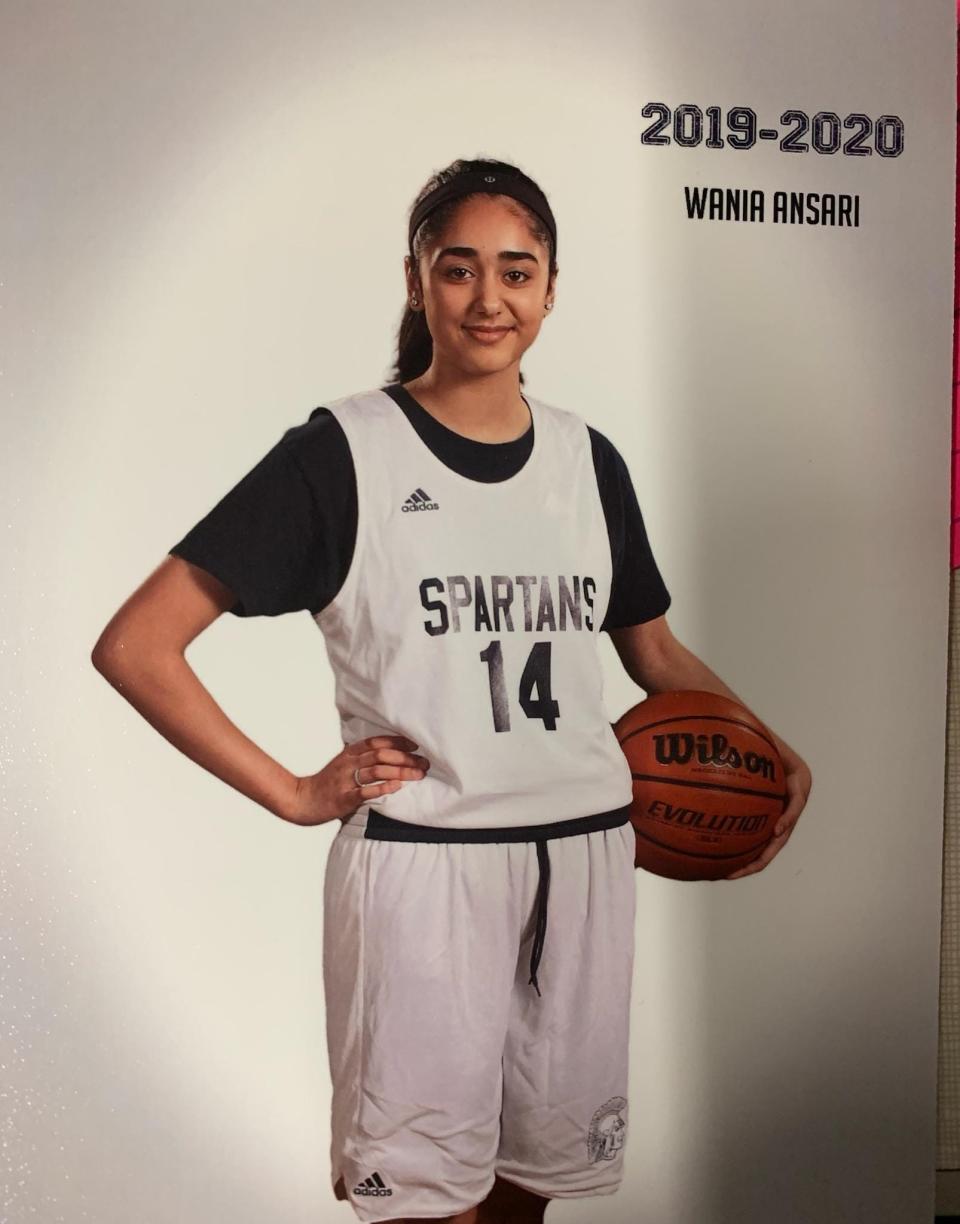
Wania Ansari previously played basketball at Gates-Chili. She'd have an alarm on the bench and sub out of games at iftar. Ansari said she always breaks her fast with the traditional date, as Prophet Muhammad did.
"It was tough but I managed it. Fasting is an obligation. ... It became a routine," said Ansari, a Rush-Henrietta senior.
Everyone has a different suhoor strategy. Aslam falls asleep around midnight and wakes up at 4 a.m. His mother brings water, dates, two eggs and an Indian flatbread called parotta to his bed. After suhoor, Aslam gets two more hours of sleep before school.
"Ramadan is a little more demanding than the rest of the year," Harunani said. "People work out their own system. By the time it hits 6:30 p.m., you're a really 'hangry' at that point."
Omar Zakaria stayed up until 4 a.m. his senior year of high school at Suffield Academy in Connecticut. Now, the 19-year-old is trying a different strategy to keep him well rested for his University of Rochester courses and athletic schedule.
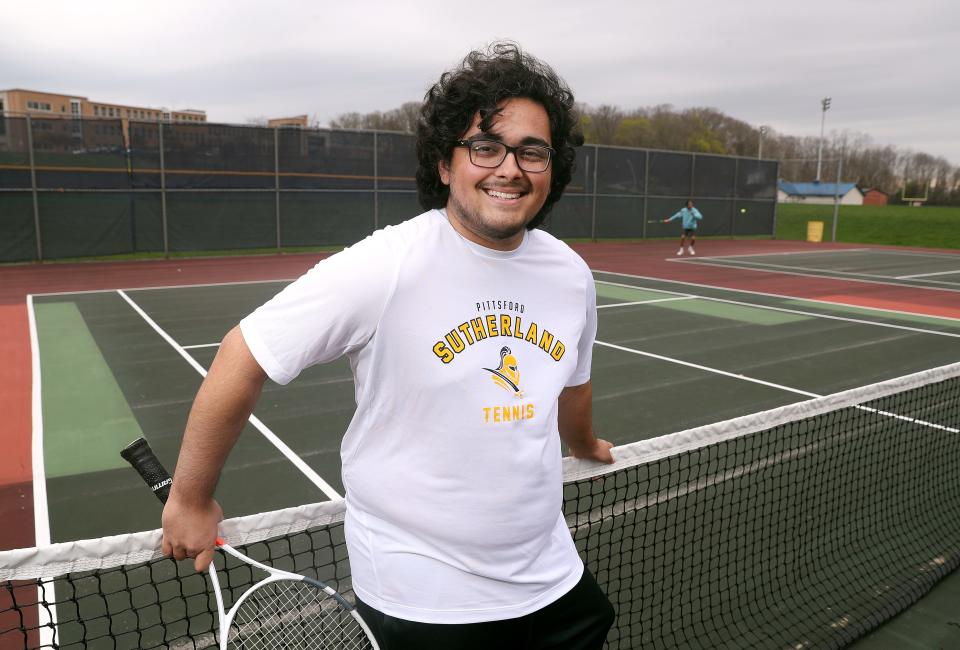
Zakaria eats just before falling asleep at 1:30 a.m., completely sleeping through suhoor on a stomach full of yogurt, cucumbers, bagels or cereal. In Cairo, Egypt, where Zakaria was born and raised, yogurt and cucumbers are popular for keeping people hydrated.
"I can't cook that well, but my mom makes a proper meal at home," said Zakaria, who plays on UR's No. 10-ranked squash team.
As for oversleeping suhoor, how often do people accidentally miss the pre-sunrise morning meal?
"That's your wake-up call. You'll set 10 alarms just to make sure it doesn't happen again," Aslam said.
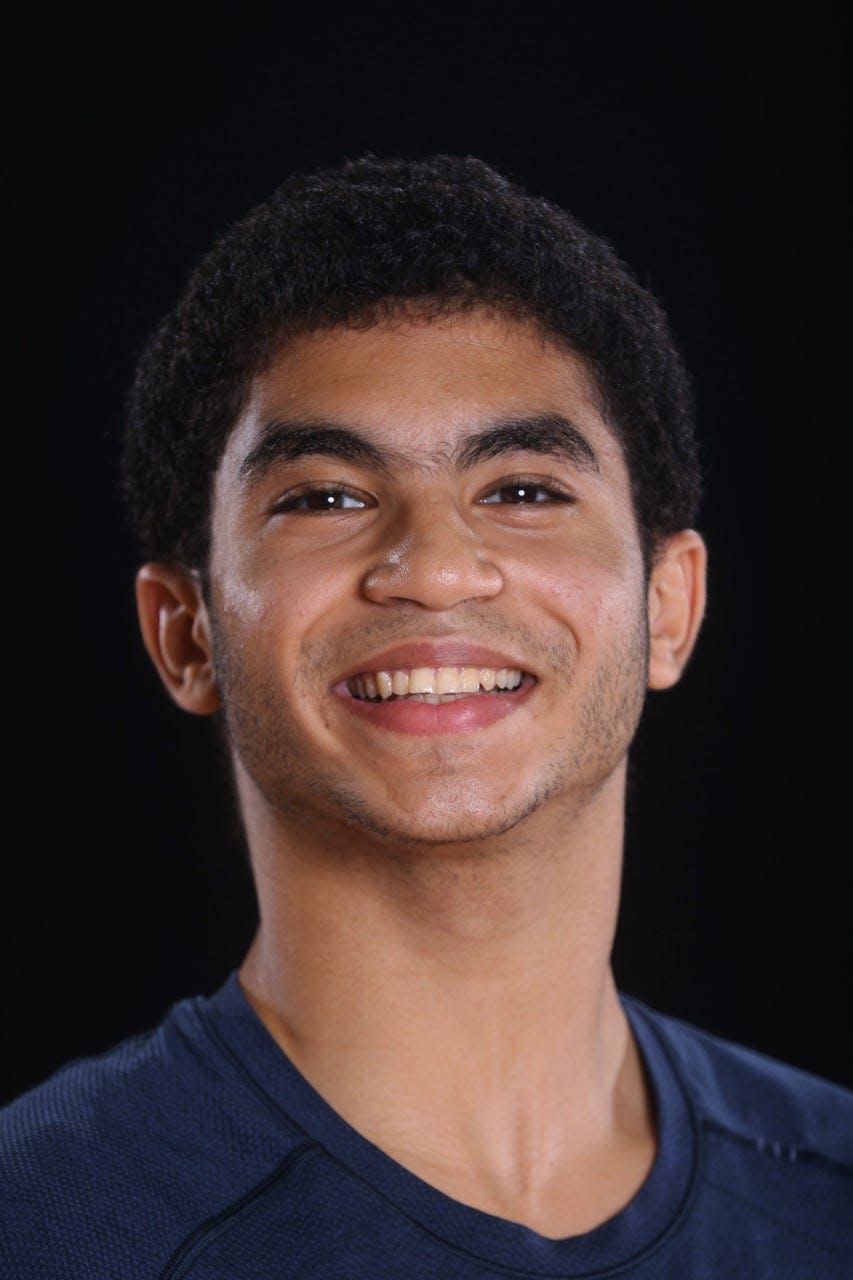
Ramadan across the world and in Rochester
Zakaria notices glaring differences in how Ramadan is observed in the Middle East contrary to America.
Islam is the most popular religion in the Middle East. Practically everyone in that region celebrates Ramadan together. Christianity is more prominent in the states, where Zakaria said he feels Islam isn't acknowledged as much.
"It's more normal. We're all fasting, tired and hungry together," said Zakaria, who was born in Cairo, Egypt and also lived in Saudi Arabia.
In the Middle East, Zakaria said the entire month is festive. He compared it to Christmas season in America. Muslim families take turns hosting iftar throughout Ramadan.
This is Zakaria's second Ramadan away from the Middle East. Last year he was studying at Suffield Academy high school in Suffield, Connecticut. Zakaria was caught off guard by the handful of Muslim students not fully committed to fasting.
Suffield's dining hall stayed open late, and teachers understood if fasting Muslim students asked to skip class for rest, but Ramadan wasn't acknowledged beyond that, Zakaria said.
At Pittsford Sutherland, Muneeb Aslam said students recently created a Muslim Students Association. The club used morning announcements to explain Ramadan traditions. During lunch hours, Sutherland offers an extra room for students fasting.
Ansari is satisfied with how Ramadan was recognized at both Rush-Henrietta and Gates-Chili. Teachers gave her empty classrooms for her daily prayers.
"I never had a hard time. My teammates also understood. Everyone took it pretty easy," Ansari said.
Harunani said Muslim traditions were not acknowledged at her high school in Rockford, Illinois. Belhseine echoed those sentiments, explaining how Ramadan was hardly acknowledged prior to arriving at the University of Rochester.
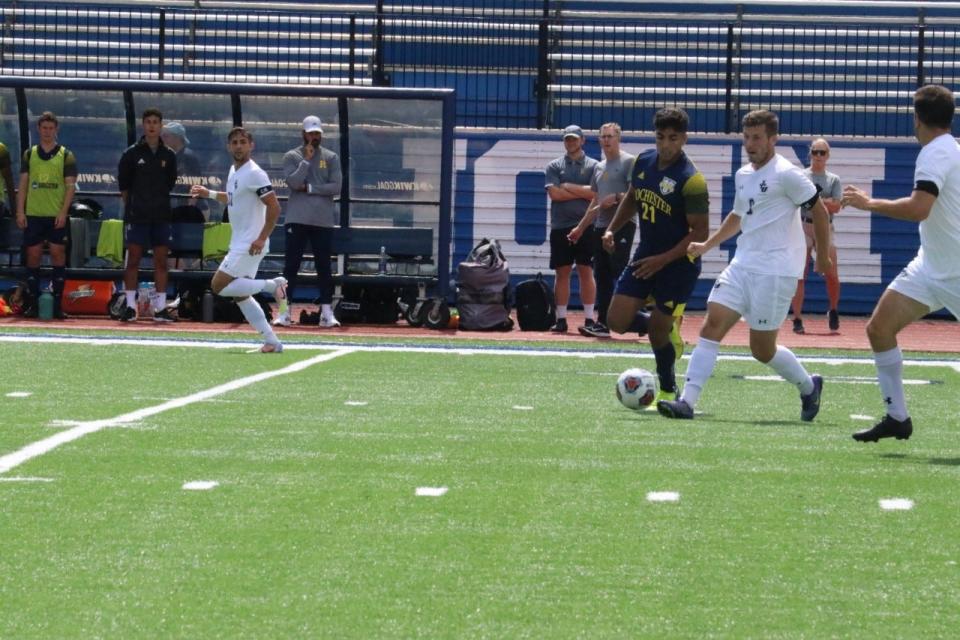
"What bothered me was that my classmates had no idea why I was fasting, but in college, I feel like everyone knows and respects it," Belhseine said.
The University of Rochester's Muslim Students' Association is very active on campus. The club gives out donated food for suhoor every morning. The Islamic Center of the Rochester helps MSA with iftar Monday to Thursday. From Friday to Sunday, sponsors and local restaurants donate meals to MSA for an iftar that feeds 100 people.
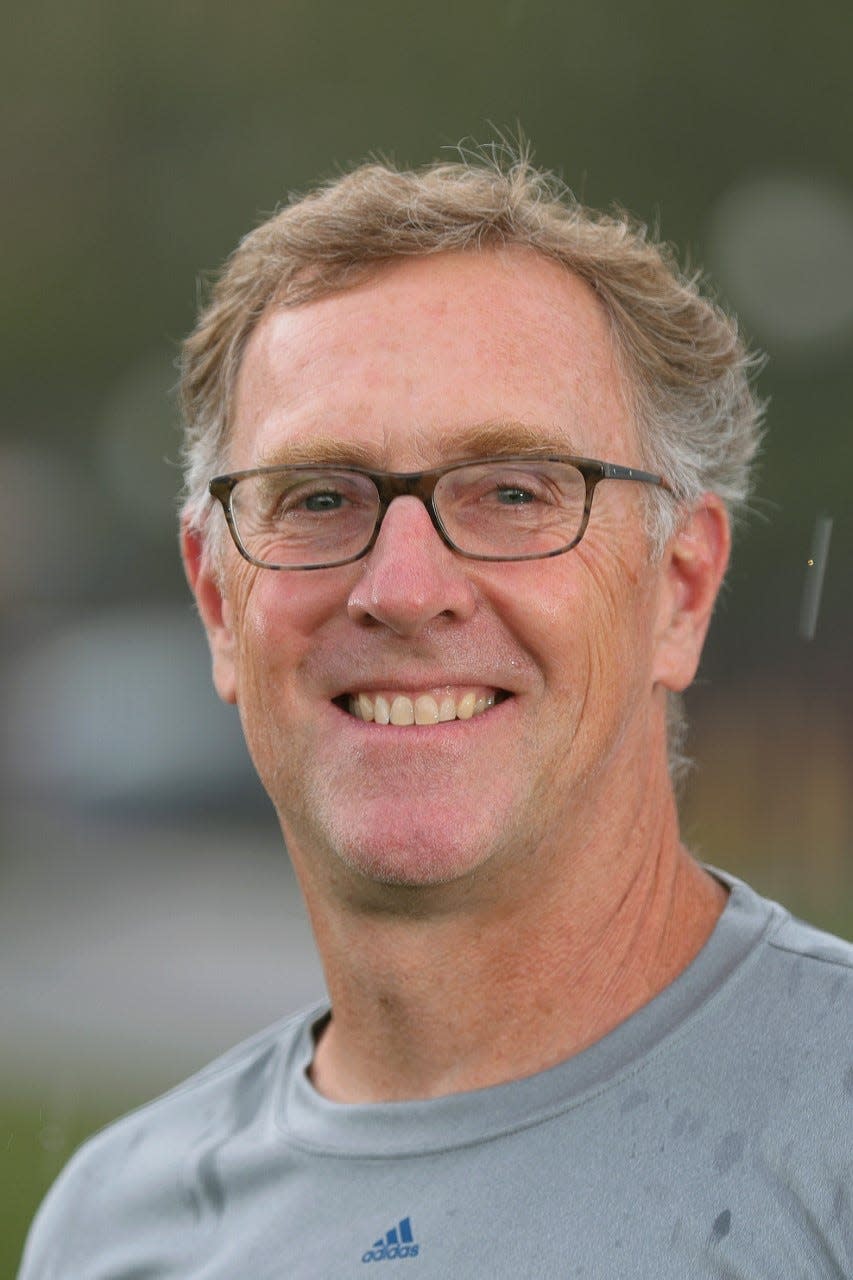
UR men's soccer coach Chris Apple said he constantly communicates with Belhseine on fasting while training. Fasting was rough on Belhseine his freshman year, but he's since learned how to pace himself.
"It feels good that he's acknowledging a tradition of mine," Belhseine said.
The sun usually sets mid-soccer practice these days. Apple is perfectly fine with Belhseine dropping everything to eat and drink as soon as iftar begins. An energy bar holds Belhseine over until he settles down for a more appropriate meal around 9:30 p.m.
Apple admitted he was unfamiliar with Islam until adulthood. He's still learning. In fact, Apple asked Belhseine to share his Muslim family traditions with the team during a recent team meeting.
Belhseine said he was very grateful for the opportunity.
"It was a great opportunity for our entire team to learn from him," Apple said.
For Ramadan, a focus on reflection
Ramadan is the holy month of fasting.
The ninth month of the Hijri calendar, Ramadan began April 2 this year. According to Islamic tradition, this is the month Allah revealed the Quran to the Prophet Muhammad.
Healthy Muslims fast from dawn to dusk. Many children wait until they are teenagers to fast, but as with Aslam and Zakaria, they can start as young as 9 years old.
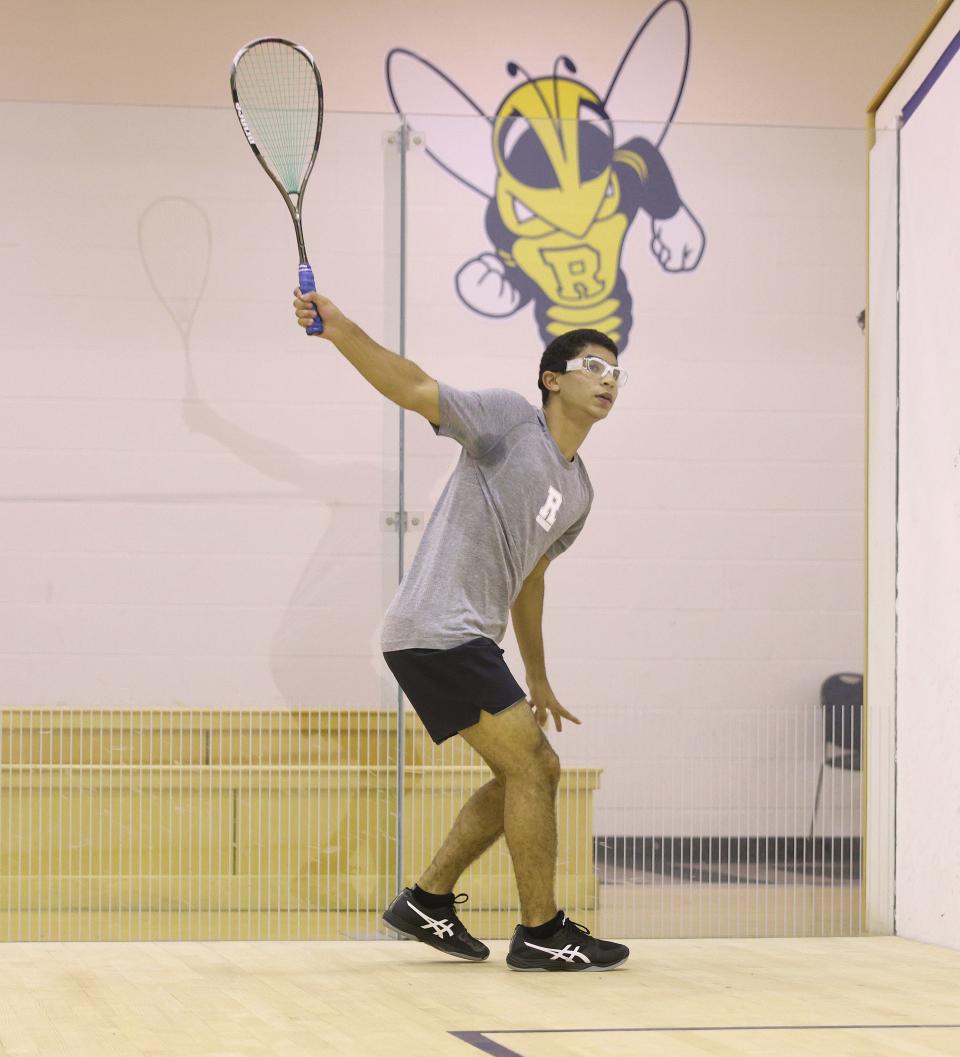
Fasting is important for spiritual discipline. Muslims use this time to get closer to Allah.
Prior to college, Zakaria had time to read the entire Quran with his family during Ramadan. The Muslim holy book is about 600 pages long, so he'd read about 20 pages a day. One year, Zakaria tried to finish the Quran twice.
"Ramadan is not the same when I don't do it," Zakaria said.
Ansari tries to keep up with the daily five prayers during Ramadan. She'd even find time to read the Quran on her phone, like on long bus rides.
Eid al-Fitr marks the end of Ramadan. It is one of the most recognized Muslim holidays, and the first time Muslims can eat during daylight again. Its date is dependent on the first sighting of the crescent moon, which is expected to be Monday. Muslims wish each other "Eid Mubarak," exchange gifts and celebrate.
It is common for Muslims to observe Eid al-Fitr with a day off, but student-athletes can be busy. Zakaria has final exams Monday. Aslam once had a tennis match.
Ansari is not playing sports this year, so she'll take off from school and eat Dunkin' with her family in the morning, and pray Eid namaz with her family before the big feast around 11 a.m.
"It's the biggest day of the year for us. Something to look forward to the whole month," Aslam said.
Email Marquel Slaughter at mslaughter1@gannett.com and follow his Twitter @MarquelSports. Sign up for our high school sports newsletter.
This article originally appeared on Rochester Democrat and Chronicle: Ramadan 2022: How Rochester Muslim athletes can fast and play sports

